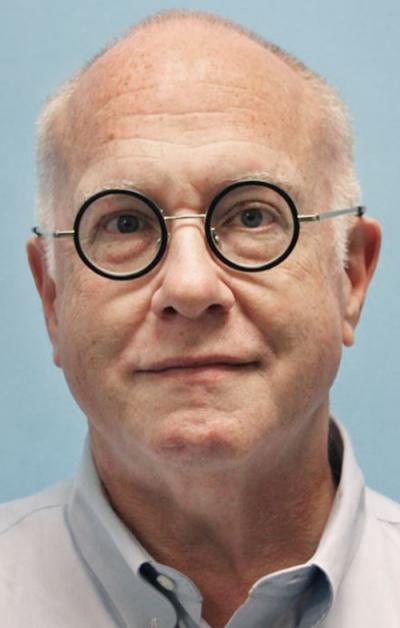

Domain Names |
Sponsored by |

|
 Ethos Capital has recently announced that it has voluntarily proposed to add an amendment to Public Interest Registry's (PIR) .ORG Registry Agreement with ICANN in the form of a Public Interest Commitment, also known as a "PIC." In the press release Ethos indicated that the PIC would become "legally binding" and "enforceable" both by ICANN and by members of the community. I anticipate that some would ask a number of logical questions: How would that work in practice?
Ethos Capital has recently announced that it has voluntarily proposed to add an amendment to Public Interest Registry's (PIR) .ORG Registry Agreement with ICANN in the form of a Public Interest Commitment, also known as a "PIC." In the press release Ethos indicated that the PIC would become "legally binding" and "enforceable" both by ICANN and by members of the community. I anticipate that some would ask a number of logical questions: How would that work in practice?
 When ISOC, PIR and Ethos announced the sale in November they hoped for a quick transaction. PIR CEO Jon Nevett announced the same week that PIR would be going on a buying spree. This was optimistic. Six months, if at all, is now the more likely outcome. How many times in recent history have companies surprised stakeholders with their best-laid plans, only to discover we no longer live in a world where business has free reign. The glory days of the 2000s died with Lehman Brothers.
When ISOC, PIR and Ethos announced the sale in November they hoped for a quick transaction. PIR CEO Jon Nevett announced the same week that PIR would be going on a buying spree. This was optimistic. Six months, if at all, is now the more likely outcome. How many times in recent history have companies surprised stakeholders with their best-laid plans, only to discover we no longer live in a world where business has free reign. The glory days of the 2000s died with Lehman Brothers.
 On 11 February, I participated in a discussion about the pending sale of PIR at American University Washington College of Law, appropriately titled, The Controversial Sale of the .ORG Registry: The Conversation We Should Be Having. It was great to have a balanced discussion, free of some of the emotions that have often made it hard to discern the realities of the transaction. Certain misapprehensions arose in the discussion that we lacked the time to explore fully, so I want to take those up here.
On 11 February, I participated in a discussion about the pending sale of PIR at American University Washington College of Law, appropriately titled, The Controversial Sale of the .ORG Registry: The Conversation We Should Be Having. It was great to have a balanced discussion, free of some of the emotions that have often made it hard to discern the realities of the transaction. Certain misapprehensions arose in the discussion that we lacked the time to explore fully, so I want to take those up here.
 The PIR/.ORG transaction is a watershed moment for ISOC. What had once seemed (at least to ISOC and its Board) to be ISOC's chance to transform its finances now seems to many to be a threat to ISOC's essence, and even its very existence. From the ISOC-NY perspective, this entire affair points out the paucity of community-involved multistakeholder participation in ISOC's critical decision-making processes (and other processes, too).
The PIR/.ORG transaction is a watershed moment for ISOC. What had once seemed (at least to ISOC and its Board) to be ISOC's chance to transform its finances now seems to many to be a threat to ISOC's essence, and even its very existence. From the ISOC-NY perspective, this entire affair points out the paucity of community-involved multistakeholder participation in ISOC's critical decision-making processes (and other processes, too).
 ICANN's request for comment on amending the .com registry agreement to restore Verisign's pre-2012 pricing flexibility ended last Friday and, with 8,998 responses submitted by stakeholders, may have been a multistakeholder version of the St. Valentine's Day Massacre. Public interest in .com pricing is understandably high but the sheer volume of responses – nearly three times the number of comments submitted this summer on deregulating .org pricing – also suggests a show of force...
ICANN's request for comment on amending the .com registry agreement to restore Verisign's pre-2012 pricing flexibility ended last Friday and, with 8,998 responses submitted by stakeholders, may have been a multistakeholder version of the St. Valentine's Day Massacre. Public interest in .com pricing is understandably high but the sheer volume of responses – nearly three times the number of comments submitted this summer on deregulating .org pricing – also suggests a show of force...
 We were disappointed to see The Pittsburgh Post-Gazette publish a recent editorial on February 13 about the sale of Public Interest Registry (PIR, the company that operates .ORG) that propagates false information about the transaction, including runaway prices, censorship and lack of experience. Runaway prices? Ethos Capital and PIR have committed to capping price increases to no more than ten percent per year on average.
We were disappointed to see The Pittsburgh Post-Gazette publish a recent editorial on February 13 about the sale of Public Interest Registry (PIR, the company that operates .ORG) that propagates false information about the transaction, including runaway prices, censorship and lack of experience. Runaway prices? Ethos Capital and PIR have committed to capping price increases to no more than ten percent per year on average.
 Within the next year, the ICANN Board may well face a decision that will help determine whether ICANN is capable of serving the global public interest or whether it is degenerating into an industry-controlled self-regulatory association. The issue can be framed quite simply: will ICANN approve a process for the creation of a new wave of new generic top level domains that will include "closed generic" gTLDs?
Within the next year, the ICANN Board may well face a decision that will help determine whether ICANN is capable of serving the global public interest or whether it is degenerating into an industry-controlled self-regulatory association. The issue can be framed quite simply: will ICANN approve a process for the creation of a new wave of new generic top level domains that will include "closed generic" gTLDs?
 No, this topic hasn't yet been exhausted: There's still plenty more conversation we can and should have about the proposed sale of the .ORG registry operator to a private firm. Ideally, that conversation will add more information and more clarity about the issues at stake and the facts that underpin those issues. That's why I'm planning to attend today's event at American University where the sale's proponents, opponents and undecideds will have a tremendous opportunity to better understand one another.
No, this topic hasn't yet been exhausted: There's still plenty more conversation we can and should have about the proposed sale of the .ORG registry operator to a private firm. Ideally, that conversation will add more information and more clarity about the issues at stake and the facts that underpin those issues. That's why I'm planning to attend today's event at American University where the sale's proponents, opponents and undecideds will have a tremendous opportunity to better understand one another.
 A few good questions have circulated in response to my recent blog post seeking clarity around the following: 1) what we mean with respect to adhering to Public Interest Registry's (PIR) historic practices on pricing, and 2) our interpretation of how the new co-operative proposal would reward speculators. With regard to Ethos' pricing commitments: we are not saying that we will raise prices 10% every year -- our commitment is that any price increase would not exceed 10% per year on average, if at all.
A few good questions have circulated in response to my recent blog post seeking clarity around the following: 1) what we mean with respect to adhering to Public Interest Registry's (PIR) historic practices on pricing, and 2) our interpretation of how the new co-operative proposal would reward speculators. With regard to Ethos' pricing commitments: we are not saying that we will raise prices 10% every year -- our commitment is that any price increase would not exceed 10% per year on average, if at all.
 Given the level of public interest in Ethos' acquisition of Public Interest Registry ("PIR") from the Internet Society, it is no surprise that this agreement continues to attract press attention. Ethos welcomes open discussion on this important investment, and we are of course following the media coverage closely. Unfortunately, it is not always possible to respond point-by-point to every article, so I would like to take this opportunity to address several mischaracterizations of the deal recently reported by Wired, Deutsche Welle, and others.
Given the level of public interest in Ethos' acquisition of Public Interest Registry ("PIR") from the Internet Society, it is no surprise that this agreement continues to attract press attention. Ethos welcomes open discussion on this important investment, and we are of course following the media coverage closely. Unfortunately, it is not always possible to respond point-by-point to every article, so I would like to take this opportunity to address several mischaracterizations of the deal recently reported by Wired, Deutsche Welle, and others.